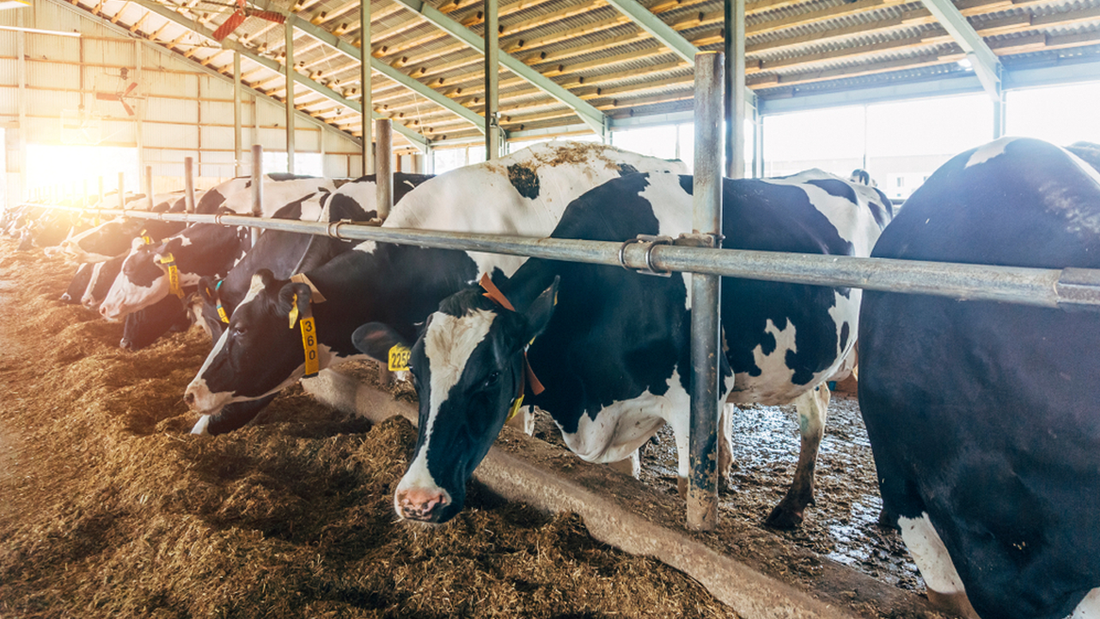Livestock animals require a well-rounded diet that includes essential nutrients, fluids, minerals, and vitamins. Hence, you must understand the importance of a whole diet for your farm animals. When you provide them with proper nutrition, not only does it support their growth, development, and reproductive health but also enhances their immune system. It ultimately enables them to resist infections in every season. These benefits collectively contribute to more profitable and sustainable agricultural practices.
Whether you provide your livestock with commercial feeds like concentrates or on-farm feed, it's vital to ensure that each animal feed portion aligns with the specific dietary requirements of animals at different life stages. For example, cattle have distinct nutritional needs compared to pigs, and the diet of a lactating cow can vary from that of a buffalo. Additionally, consider enhancing your feeds' nutritional profiles by incorporating livestock feed supplements. These supplements might contain some animal feed flavors which we will discuss later in this article. But first, let's try to understand the significance of animal nutrition in the context of livestock production.
3 Reasons why livestock nutrition is essential
It regulates animal temperament
Have you ever got irritated when you do not find something satisfying to eat? Depriving your body of essential nutrients can lead to moodiness and a sense of discontent. Animals exhibit similar reactions. It emphasizes the significance of proper animal nutrition in maintaining positive behavior.
It is great for breeding
You can maintain your livestock’s health through a daily diet which is essential for facilitating easier reproduction in animals. However, certain animals require additional nutritional supplements. These might be extra doses of nutrition apart from their regular intake of proteins and carbohydrates. For instance, if you're raising sheep for both breeding and wool production, and you've encountered issues like poor wool quality then you must consider incorporating extra supplements into their diet. The supplements enhance wool quality but also boost reproductive performance and potentially fill the nutritional gap in your sheep's diet.
Prevent malnutrition and stave off deficiencies
Numerous nutrition-related illnesses affect livestock animals. But most of them arise from malnutrition or deficiencies in essential minerals and vitamins. These inadequacies and malnourishment significantly slow down the growth and development of your animals. In severe instances, they can result in irreversible health complications and sometimes also cause fatalities.
Importance of different flavors in animal feed
As we discussed earlier in this blog, most supplements contain flavors. Why? Because both taste and smell matter in livestock nutrition. These are the essential factors that influence the palatability of animal feed. Feed with an unappealing aroma to animals is deemed to have low palatability which results in lower intake levels or no consumption of that food.
Therefore, it is crucial to enhance the smell and aroma of feed to promote optimal animal feed intake and ensure adequate nutrient absorption. Most times D- Carvone and Carvacrol are used in the supplements for extra flavors.
Moreover, the role of smell goes beyond merely initiating animal feeding; it rather remains significant during the entire consumption process. This is because, as animals chew, they reencounter the scent through the retro-nasal olfactory system.
Hence, one must include flavors in animal feed to fine-tune or maintain the desired feed aroma.
3 advantages of animal feed flavors
- Flavors ensure the consumption of adequate feed quantities, which is vital for efficient animal production.
- They impart aroma and taste to less appealing feed (e.g., when medications are included), enhancing palatability. In the event of changes in feed formulation, it prevents animals from rejecting the feed.
- An effective flavor product attracts animals to the feed. It's worth noting that only volatile particles are captured and processed by nasal receptors, influencing the olfactory sense. The aromatic component can be further subdivided into sub-components, often referred to as "notes." When the industry manufactures animal feed flavors, they make sure to consider these notes for better palatability.
In case you are looking for good quality animal feed flavors, contact SBBLG today! They are one of the leading fragrance and flavor suppliers in India.





